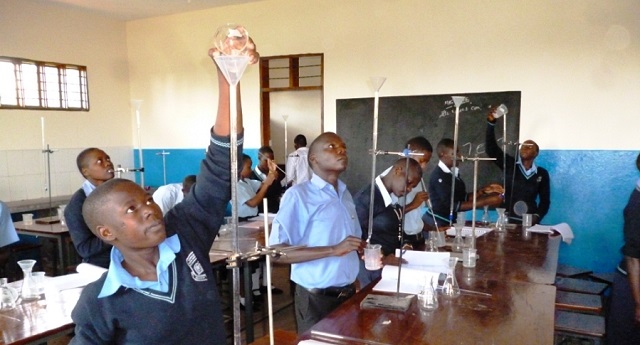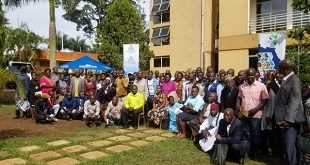
Why 14 years after government made sciences compulsory, failure rate remains high
Kampala, Uganda | FLAVIA NASSAKA | Physics was the worst done subject in the recently released O’ Level examinations. Only 2,280 of the 326,212 students that sat the exams scored over 70%. Another 40,000 scored over 55%. The rest, a whopping 280,000 or 85% of all students scored below 50%.
The bad physics exam scores are repeated in the other science subjects; biology, chemistry, and mathematics. And they keep recurring in spite of the government’s introduction of programmes such as the Secondary Science and Mathematics Teachers’ Training (SESMAT), that are designed to improve grades.
The government introduced SESMAT with assistance from the government of Japan through Japan International Cooperation Agency (JICA) in 2005, a year after it made the study of science compulsory for O’ Level students.
The logic behind SESMAT was possibly simple; copy from the best. Japan is consistently ranked among the top science education nations by the Pisa studies of the Paris-based Organisation for Economic Co-operation and Development (OECD). So copying some of the tactics that the Japanese use to teach and score high grades in science exams could improve Uganda’s schools. Unfortunately, it has not worked.
Instead, as Daniel Nockrach Odongo, the Executive Secretary of the Uganda National Examinations Board, said at the release of 2017 Uganda Certificate of Education (UCE) examinations results on Feb.07, the performance in science and mathematics continues to be poor for the majority of candidates.
He said in 2017, the distinction and credit levels in physics and chemistry were below 21% and 40% of the candidates were unable to exhibit the minimum required competency to be graded.
All the 326,212 candidates that sat O’ level exams in 2017 sat for biology, chemistry, physics and mathematics, under a government policy passed in 2004.
While general performance for all subjects improved by 4% compared to 2016, performance in science subjects remained bad, Odongo says candidates experienced problems in the handling of apparatus during practical science tests. They also could not easily make and record observations or draw conclusions from those observations.
He said examiners reported that the cause of these failures are teachers who do not integrate practical training during the teaching of sciences and only concentrate on theory. In very many schools, according to him, practical lessons are not done by candidates until towards the final exams and students go into practical examinations with very limited preparation.
“Many lack basic principles needed in the understanding of science,” he said.
Overwhelmed teachers
To retired teacher and Educationist Herbert Asiimwe Mutamba, the poor performance of sciences is not surprising. He told The Independent that the results have painted this same picture since government resolved to make sciences compulsory for all students. Last year, for instance, over 55% of the candidates failed mathematics, physics and chemistry whereas in 2016 figures showed 45% of the candidates scored the barest minimum in these subjects.
The results show in Biology only 0.3% managed to score a distinction. 25.8% scored a credit whereas 55.5% got a pass grade. In physics which is also the worst done subject of the year only 0.7% scored a distinction and 12.5% a credit. When it came to chemistry 2.2% scored a distinction and 18.8% a credit.
Samuel Olong, the head of Biology Department at the government aided Kololo Secondary School in Kampala thinks he knows why the picture is grim.
“It’s because the government forced students to do what they don’t like,” he told The Independent on Feb.11. Then he quickly adds that to make a bad situation worse, the government did not put in place an efficient plan to ensure that students pass science subjects, which they had previous always shunned. Even basic requirements; such as science teachers, are lacking, he said.
Olong who has been teaching the subject for the last 20 years says for a population of 3500 students, his school only has three permanent science teachers currently and that those that were transferred were never replaced.
“We are overwhelmed. You can’t blame the poor results on teachers. We are very few,” he said.
Olong says when the government declared sciences compulsory, he thought it would increase the number of science teachers, equip laboratories and buy more text books to match the numbers. But, 14 years down the road, they still grapple with the same challenges.
When it comes teachers, there are currently about 6500 science teachers across the country.
Mutamba adds that the few teachers moonlight in more than one school and even the very few who teach in one school find themselves teaching all classes which may have more than one stream each.
 The Independent Uganda: You get the Truth we Pay the Price
The Independent Uganda: You get the Truth we Pay the Price




I benefited from the article. Thanks